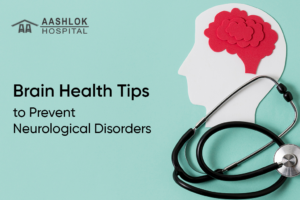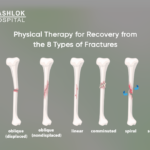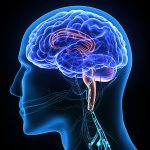Brain Health Tips to Prevent Neurological Disorders

Your brain plays a vital role in every aspect of your life, yet it often goes unnoticed until issues arise. With neurological disorders becoming increasingly common, it’s more important than ever to focus on preventive measures. By incorporating simple brain health tips into your daily routine, you can support cognitive function and overall wellness. Aashlok Hospital offers trusted solutions for neurological disorders treatment, empowering individuals to take charge of their brain health with confidence and care. So, take the first step towards a healthier mind today—because every choice you make matters in safeguarding your future.
What Are Neurological Disorders?
Neurological disorders refer to conditions that impact the nervous system, including the brain, spinal cord, and nerves, disrupting their ability to function properly. These disorders encompass a wide range of conditions, such as Alzheimer’s disease, Parkinson’s disease, stroke, epilepsy, and multiple sclerosis. Factors contributing to these conditions include genetic predispositions, traumatic injuries, infections, and lifestyle choices like poor diet or exposure to environmental toxins. Understanding these causes is essential to reducing the risk and ensuring timely intervention.
Recognizing the early signs of neurological disorders, such as persistent headaches, memory issues, difficulty in coordination, or speech challenges, can make a significant difference in treatment outcomes. Early detection, combined with effective neurological disorders treatment, helps manage symptoms, slow progression, and improve quality of life. Staying informed and seeking medical advice promptly can be key steps in protecting long-term brain health.
Tips for Maintaining Brain Health to Prevent Neurological Disorders
Focusing on brain health is vital for maintaining cognitive function and reducing the risk of neurological disorders. By making small but consistent changes to your daily routine and leveraging expert guidance, you can protect and enhance your brain’s well-being. Below are some effective brain health tips suggested by our neurologists:
Prioritize Quality Sleep
Sleep is essential for memory consolidation, clearing toxins, and supporting overall brain function. Aim for 7-9 hours of uninterrupted sleep each night to allow your brain to repair and rejuvenate. Establish a consistent bedtime routine, avoid screens before sleeping, and create a calm, dark sleeping environment. If sleep-related issues persist, seeking guidance from our neurologists can help prevent long-term cognitive challenges and boost brain health.
Manage Stress Effectively
Chronic stress negatively impacts brain health by impairing memory, reducing focus, and contributing to mental fatigue. Practice relaxation techniques such as meditation, deep breathing, or mindfulness to keep stress levels in check. Engaging in hobbies or connecting with nature can also promote a sense of calm. As part of our approach at our hospital, we encourage creating personalized stress management plans to support long-term well-being.
Social Connections Matter
Staying socially active helps combat loneliness, enhances mood, and prevents cognitive decline. Engage in meaningful conversations, participate in group activities, or join community events to keep your brain engaged and stimulated. Socializing also releases endorphins that improve emotional health, which directly influences cognitive function. At Aashlok Hospital, we focus on promoting holistic mental well-being by encouraging strong social connections.
Avoid Harmful Substances
Smoking, excessive alcohol consumption, and recreational drugs can severely damage brain cells, leading to long-term cognitive issues. Replacing these habits with healthier alternatives, such as staying hydrated or choosing nutritious snacks, can make a significant difference. Building a healthier lifestyle is essential for reducing the risk of neurological disorders, and we’re here to guide and support individuals in their journey.
Regular Health Screenings
Regular check-ups are vital for detecting early signs of neurological disorders and addressing potential issues before they escalate. Routine assessments, such as brain function tests, blood pressure monitoring, and cholesterol checks, provide valuable insights into your overall health. Staying proactive with screenings helps in identifying and managing risk factors effectively, allowing you to take control of your brain health.
Hydration for Brain Function
Proper hydration is crucial for maintaining concentration, memory, and overall brain performance. Dehydration can impair cognitive abilities and lead to fatigue, headaches, and reduced focus. Make it a habit to drink enough water daily and limit sugary drinks that can affect your health. Hydration is a simple yet powerful way to improve cognitive function and support overall wellness.
Protect Your Brain from Injury
Head injuries are a leading cause of long-term cognitive issues and can increase the risk of neurological disorders. Always wear helmets while riding bikes, fasten seat belts in vehicles, and ensure safety precautions at home to prevent falls. Recovery from brain injuries requires a structured approach, and rehabilitation can significantly help regain function and prevent further complications.
Mental Health Awareness
Conditions like anxiety, depression, and chronic stress can affect brain function and overall mental health if left untreated. Be mindful of changes in mood, focus, or energy levels, and seek professional help when needed. Prioritizing mental health through counseling, therapy, or even simple self-care routines can significantly improve brain health and enhance daily life. At Aashlok Hospital, we provide enhanced support, counseling, and neurological disorders treatment, ensuring you receive the care and guidance needed to protect your brain and live a healthier life.
Risk Factors of Neurological Disorders to Watch Out For
Neurological disorders can arise from various factors, many of which are preventable with proper awareness and care. Identifying and addressing these risks early can make a significant difference in maintaining brain health and following brain health tips.
-
Genetic Predisposition
A family history of neurological conditions like Alzheimer’s or Parkinson’s increases the risk. Understanding your genetic background can help you take proactive measures to delay or prevent the onset of such disorders.
-
Chronic Health Conditions
Conditions such as diabetes, hypertension, and high cholesterol can lead to complications like strokes and other neurological disorders. Managing these conditions effectively is essential for reducing their impact on the brain.
-
Stress and Mental Health Issues
Chronic stress, anxiety, and depression can affect brain function over time. Addressing mental health through relaxation techniques and professional help is key to protecting cognitive well-being.
-
Exposure to Environmental Toxins
Pollutants, pesticides, and heavy metals can harm brain cells and increase the likelihood of neurological issues. Reducing exposure to such toxins and maintaining a clean environment are essential for brain health.
-
Head Injuries
Past head trauma or concussions can elevate the risk of long-term neurological problems. Taking safety measures like wearing helmets and preventing falls is critical.
-
Dietary Deficiencies
Lack of essential nutrients, such as omega-3 fatty acids, B vitamins, and antioxidants, can impair brain function. A balanced diet rich in brain-healthy foods is vital for maintaining cognitive health.
Conclusion
Caring for your brain health is vital to ensuring a sharp mind and a fulfilling life. Incorporating healthy habits like quality sleep, stress management, and regular physical activity can significantly lower the chances of developing neurological disorders. Proactive choices today can lead to a healthier tomorrow. To those seeking reliable guidance or specialized care for your neurological issues, Aashlok Hospital offers a range of services designed to help you maintain and improve your cognitive well-being. Let us be your partner in fostering long-term brain health!
FAQs
What are the types of neurological disorders?
Common types include Alzheimer’s, Parkinson’s, epilepsy, strokes, multiple sclerosis, migraines, and neuropathies, caused by genetics, injuries, or lifestyle factors.
What are the symptoms of neurological problems?
Symptoms include headaches, memory loss, numbness, muscle weakness, seizures, and mood changes. Early detection is key.
How to slow the aging brain?
Exercise, eat a nutrient-rich diet, sleep well, manage stress, and stay mentally active through puzzles or learning.
How can I make my brain healthy?
Adopt healthy habits like regular exercise, proper hydration, quality sleep, stress management, and regular check-ups.










